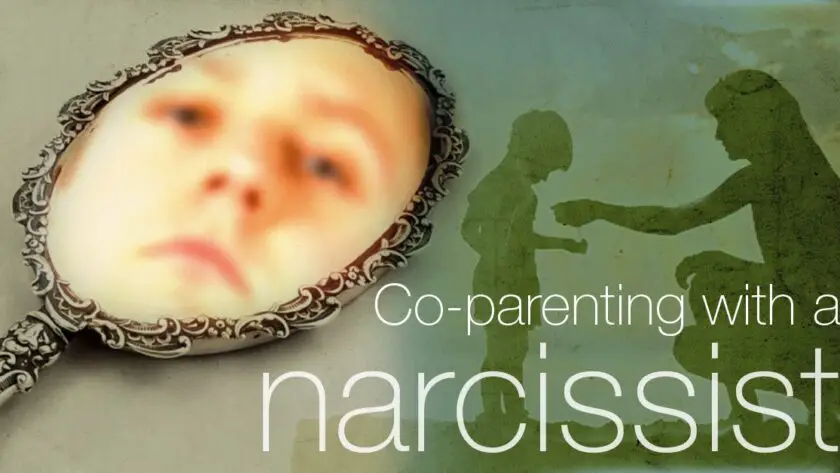Co-parenting can be a daunting journey in itself, but when it involves a narcissist ex-partner, the stakes are raised to an entirely new level. Dealing with a narcissist in a co-parenting relationship can be emotionally draining, frustrating, and even damaging to one’s well-being.
Their relentless need for control, manipulative tactics, and self-centered behavior can create an atmosphere of constant tension and conflict.
In this article, we delve into the complex world of co-parenting with a narcissist and shed light on the unique challenges faced by individuals who find themselves entangled in such situations. But fear not, as we also aim to provide you with essential tools and empowering strategies to help you reclaim your strength, protect your mental and emotional health, and navigate through the turbulent waters of co-parenting with confidence.
Through understanding the dynamics of narcissistic behavior, setting healthy boundaries, and fostering effective communication, you can pave the way towards a more harmonious co-parenting experience, even in the face of adversity. Let us embark on this transformative journey together, where you learn not only to survive but thrive amidst the trials of co-parenting with a narcissist.
My Story
Leaving an abusive relationship is never easy, and for those who share children with a narcissistic ex-partner, the ordeal doesn’t end at the exit door. Many survivors, like myself, believed that escaping the clutches of a narcissist would bring an end to the gaslighting, manipulation, and psychological torture.
Unfortunately, that wasn’t the case, as the narcissist turned their focus towards our most vulnerable assets – the children.
During the initial stages of co-parenting, I made the mistake of allowing little boundaries with shared custody, naively hoping for an amicable arrangement. But I quickly learned that giving a narcissist any wiggle room with boundaries only emboldened their attempts to regain control.
I had to summon the courage to put my foot down, despite the challenges it posed for me.
As the narcissist exhausted all efforts to lure me back into the abusive relationship, his true colors began to emerge. His biggest insecurity, a fear of abandonment, surfaced in full force.
Seeking to punish me for escaping, he embarked on a mission to make me suffer emotionally.
The cruelty escalated with verbal abuse, recording our exchanges, and spreading lies about me. I felt unsafe and alone in my struggle to protect my child from his vindictive actions.
While I am grateful that my new partner is now a positive influence in my child’s life, it pains me to witness the lack of care the narcissist shows for him. Enforcing child support has been an uphill battle, but it’s not just about the money; it’s about holding the narcissist accountable for his responsibilities as a parent.
Narcissist’s Leave Invisible Wounds
Survivors of narcissistic abuse are left with wounds that often go unnoticed by the outside world. Narcissists lack empathy and feed off control and manipulation, leaving a trail of emotional devastation.
They may appear charming to others, leading many to believe the victim is the problem, and they continuously play the victim themselves.
However, we, as survivors, can take steps to minimize their impact in our lives and protect our children. Responding instead of reacting to their provocations denies them the satisfaction they seek from our emotional distress. Setting and maintaining firm boundaries is essential, as narcissists will exploit any weakness to regain control.
Minimizing contact to the necessary minimum and seeking the help of a third party during exchanges can provide a buffer against further manipulation. Avoid using the children as messengers between you and the narcissist, as they are already dealing with enough emotional turmoil.
Above all, it’s crucial to remember that leaving the abusive relationship was the right decision. Reclaiming our power and staying true to ourselves is the best way to protect both our well-being and that of our children.
Despite the hardships, we possess an inner strength that surpasses our understanding, and we can rise above the cruelty of co-parenting with a narcissist. We are more powerful than we know.
Co-Parenting With A Narcissist
Co-parenting with a narcissist is undeniably challenging, but there are strategies you can employ to overcome these tough hurdles and protect yourself and your children from further mental and emotional abuse. Here are more ways to achieve that:
- Educate Yourself about Narcissism: Knowledge is power. Invest time in learning about narcissistic personality disorder and its traits. Understanding how narcissists operate and manipulate can help you recognize their tactics and not fall prey to their schemes.
- Practice Gray Rock Method: Gray rock is a technique where you become as uninteresting and emotionally neutral as a gray rock. When interacting with the narcissistic co-parent, keep conversations brief, straightforward, and devoid of emotional reactions. This deprives them of the emotional responses they crave.
- Document Everything: Keep a record of all communications and incidents involving the co-parent. This includes text messages, emails, and any confrontations. Documentation can be crucial if legal action becomes necessary.
- Set Clear Boundaries: Establish firm and unambiguous boundaries with the narcissistic co-parent. Stick to your limits consistently and avoid being swayed by their manipulations. Boundaries provide a shield against their attempts to control and abuse.
- Communicate Through Neutral Means: If possible, communicate with the co-parent through a neutral platform, such as a co-parenting app or email. This can reduce opportunities for direct confrontation and manipulation.
- Involve a Third-Party Mediator: Consider using a mediator or a co-parenting counselor to facilitate communication and resolve conflicts. A neutral third party can help keep discussions focused and minimize emotional outbursts.
- Focus on the Children: Always prioritize the well-being of your children. Make decisions based on what is best for them, not on trying to retaliate against the narcissistic co-parent. Keep their emotional needs as the primary concern.
- Practice Self-Care: Caring for your mental and emotional well-being is vital. Engage in activities that bring you joy and peace, surround yourself with a supportive network, and consider seeking therapy or counseling to process your emotions and experiences.
- Limit Contact: Whenever possible, minimize direct contact with the narcissistic co-parent. Restrict communication to essential matters related to the children. This reduces the chances of being dragged into unnecessary conflicts.
- Use Parallel Parenting: If co-parenting is too challenging, consider parallel parenting. In this approach, both parents disengage from each other while still actively participating in their children’s lives separately.
- Avoid Engaging in Power Struggles: Narcissists thrive on control and power struggles. Resist the temptation to engage in these battles, as it only feeds their need for dominance.
- Seek Legal Advice: Consult with a family law attorney familiar with dealing with high-conflict co-parenting situations involving a narcissist. A legal professional can guide you through the process and help protect your rights and the well-being of your children.
- Stay Positive and Hopeful: Co-parenting with a narcissist can be draining, but don’t lose hope. Focus on personal growth, maintaining a positive outlook, and being the best parent you can be for your children.
Remember, overcoming the challenges of co-parenting with a narcissist requires resilience and determination. Surround yourself with a support system, remain focused on your well-being and that of your children, and never underestimate your strength to rise above the difficulties. You can reclaim your power and protect against mental and emotional abuse.





